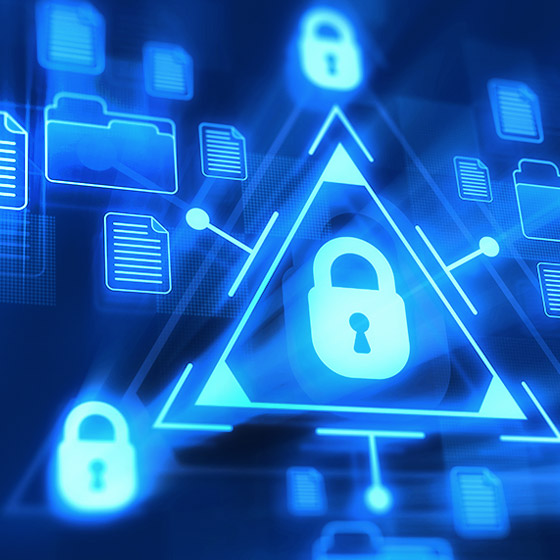


Minimizing Risk and Ensuring Compliance
At Intellectual Data, we understand the importance of establishing a robust eDiscovery strategy that minimizes risk and ensures compliance.
As a company engaging in litigation,
it is critical to be knowledgeable about the information governance and preservation status of your organization
in order to establish the right strategy for eDiscovery and minimize potential risk factors during the trial.
This includes understanding the legal principles and obligations surrounding eDiscovery and adhering to them closely.
Our team of experts can guide you through the eDiscovery process, providing education and support as needed to ensure
that you understand your legal obligations and can meet them in a cost-effective and efficient manner.
-
 Preservation:
Preservation:The preservation of all relevant data and information is critical to maintaining the integrity of the evidence and preventing spoliation.
This means that data must be collected and preserved in forensic sound manner, without any modification, tampering, or changes. -
 Relevance:
Relevance:To prevent unnecessary costs and delays, only materials that are relevant to the case or have probative value should be requested or produced.
This includes materials that provide valid support for the argument of a concerned party
or are highly relevant to the point of dispute in the trial. -
 Cooperation:
Cooperation:To ensure timely and efficient production of discovery materials, parties
involved in the litigation must cooperate in good faith.
This includes meeting court-ordered deadlines for the production of evidence and working together
to resolve any discovery disputes that may arise.
Common Mistakes
- Proper E-Discovery
- Preservation Obligation
- Not Too Expansive
- Backup Tapes
- Agreement is Essential
In Green v. Blitz U.S.A, the defendant was found to have not executed Legal Hold, poor coordination with the IT department, and inadequate execution of Discovery with inaccurate keyword search results. As a result, the defendant was ordered to pay nearly KRW 300 million in fines and state the Sanction Memorandum of this trial in all litigations for the next 5 years.
In 2009, a federal district court in the US viewed the actions taken by a Korean company, a concerned party in a patent infringement lawsuit, to delete relevant e-mails as an act of spoliation of evidence. Sanctions were imposed as a result to pay for all attorney costs and court costs. In addition, the court allowed the jury to make adverse inferences in contrary to the arguments made by the defendant who committed spoliation of evidence(a Korean company)
In Moullin Global Eyecare Holding v. KPMG in 2010, the court did not accept the plaintiff’s argument at trial, recognizing that the plaintiff’s requested scope of Discovery was too expansive.
In Jonson v. Neiman in the US, the plaintiff requested that the 5,880 backup tapes owned by the defendant be restored and submitted via e-mail. However, the defendant made strong arguments against this, stating that excessive costs and time are required to restore the backup tapes, and the backup tapes cannot restore facts with complete integrity. The court found in favor of the defendant and excluded them for data submission.
In Digicel v. Cable & Wireless PLC in the UK, the defendant made a decision based on discretion to not restore backup tapes without an agreement with the plaintiff, and did not produce this data. In response, the plaintiff asked for sanctions against the defendant for taking such an arbitrary action without a mutual agreement. The UK court ordered the defendant to restore the backup tapes and produce them as additional discovery.
According to the FRCP 37(e), one may be subject to court sanctions if found in violation of eDiscovery principles or rules. Sanctions are the strongest form of penalization in a civil trial which has considerable impact on the actual outcome of a trial. Concerned parties who engaged in such violations may be sentenced to do time in prison.
-
 Monetary
MonetarySanctions to impose punitive fines or
litigation related expenses of the opponent as a penalty -
 Limiting Claims/Defense
Limiting Claims/DefenseProhibiting certain claims or defenses, or
submission of matters related to evidence in court -
 Default Judgement
Default JudgementIf the court finds any actions committed by one of the
parties which is a severe violation of the law, the court can
rule in favor of one party without going to trial. -
 Adverse Inference
Adverse InferenceThe judge may officially instruct the jury to make ‘adverse inferences’




